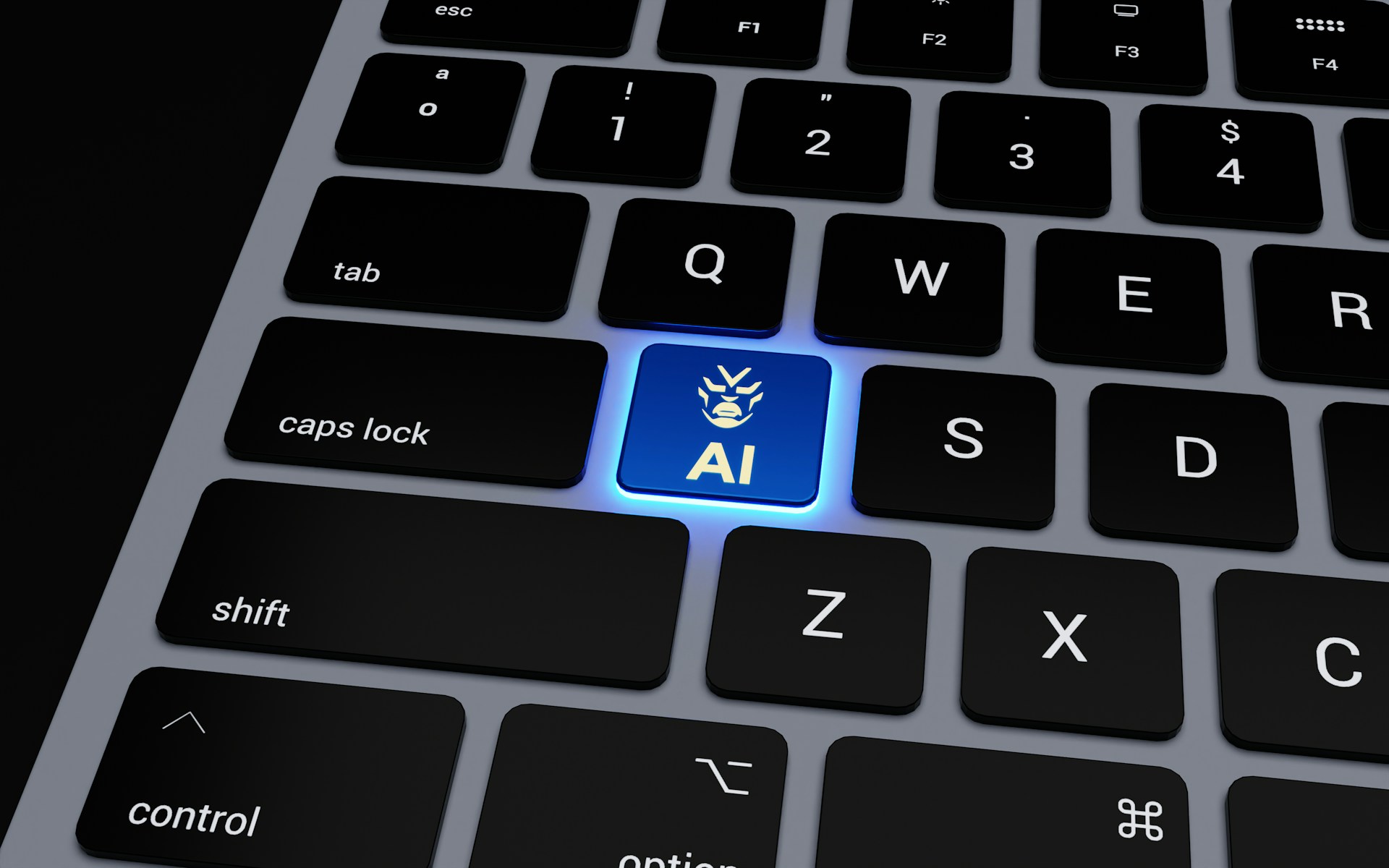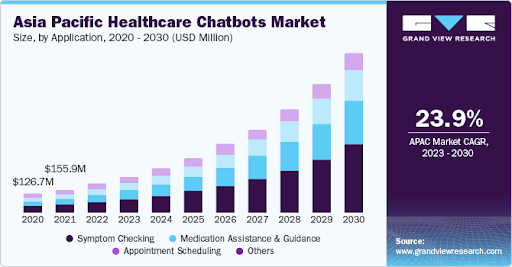Healthcare, like the rest of the world, continues to strive in a more digitalized world. One of the most promising innovations in this new world is the emergence of medical chatbots. Herein lies the possibility of fundamental changes in how patients interact with healthcare systems offering personalized care and radically transforming the overall patient experience.

Being aware of how medical chatbots work means the difference between staying ahead and fighting to stay above water as a business in the healthcare industry.
This blog explores the benefits, challenges, and future surrounding medical chatbots, which are valuable business insights. Also, you’ll be able to know why the demand for AI Chatbot development services is increasing so fast. So, let’s get started with the basics.
Understanding Medical Chatbots
The global healthcare chatbots market is expected to grow at a CAGR of 23.9% from 2023 to 2030.

Medical chatbots are designed to encourage interaction with users on health-related questions. With advanced technologies such as natural language processing and machine learning, medical chatbots will interpret what the user has to say, gauge symptoms, and then offer appropriate responses.
Such capability gives a way to achieve multiple functionalities, which may encompass scheduling appointments, reminding medication, and educating users about their health.
Key Features of Medical Chatbots
Competence in the functionality of medical chatbots lies in diversity in functionalities. Here are some core features of medical chatbots:
1. 24/7 Accessibility
Unlike fixed-hour conventional healthcare services, chatbots offer help at any hour, making it pretty easy for patients to reach out for information at nearly any time.
2. Assessment of Symptoms
Many chatbots allow symptom assessment and possible conditions or guide what to do next. On the other hand, this can be quite important to make immediate healthcare decisions.
3. Scheduling of Appointments
Chatbots reduce wait times and free more administrative staff to focus on such tasks by helping with the scheduling process.
4. Reminders for Medication Intake
They can send timely reminders for medications, ensuring adherence and helping patients manage their health more efficiently.
5. Health Education
They can deliver personalized health information based on user queries, thus fostering greater patient knowledge and empowerment.
Medical Chatbots Benefits to Businesses
Many benefits await a business in integrating medical chatbots with the delivery of healthcare services, especially regarding patient engagement and operation efficiency.
1. Patient Engagement
Medical chatbots have greatly improved patient engagement through instant answers and personalized interactions that catalyze proactive health management and, thereby, increase patient satisfaction and loyalty.
2. Cost Efficiency
Chatbots can bring significant cost savings. Robotizing regular inquiries and administrative tasks will free up resources to answer the more complex patient care issues, which ensures that healthcare providers can streamline operations overall.
3. Data Collection and Analysis
Such a medical chatbot would help gather health trends, patient preferences, and patterns of interaction for analysis purposes to enhance services, tailor marketing strategies, and improve care, thereby turning the chatbot into not only a service tool but also a goldmine of insights.
4. Scalability
With the expansion of health businesses, interaction with a large number of patients becomes difficult to administer. The best scalable solution for organizations handling more inquiries while maintaining the quality of interactions is provided by chatbots.
5. Better Health Outcomes
Through instant responses and long-term interactions, chatbots are likely to improve health outcomes. Patients responding promptly and regularly reminded typically are compliant with their treatment plans and attentive to their health needs.
Challenges Faced in the Implementation of Medical Chatbots
Though medical chatbots offer so many advantages to business houses, integrating healthcare services with such bots poses several challenges. That’s why you need to hire a software development team to overcome these challenges:
1. Lack of Knowledge of Complex Situations
While chatbots are sound in scenarios in which people raise simple questions that can be easily answered, they seem to lack some answers when dealing with complex cases of medical conditions. Since their design is essentially meant for common conversations, they lack the most pivotal solutions to complex health issues.
2. Privacy and Data Security Concerns
Healthcare concerns itself with the safety of patient data. Companies will need to ensure that their chatbots comply with regulations such as HIPAA in the US or GDPR in Europe. Hence, patient information does not fall as an easy target for hacking.
3. Technology Acceptance
Some patients will oppose the use of chatbot technology. They will prefer a conventional communication pathway instead. For instance, corporations should invest time in making the user acquainted with the general benefits of using chatbots. In the meantime, these chatbots should be user-friendly and fit into already existing structures without causing any friction.
4. Development and Upgrades
The chatbots must be maintained and upgraded to stay relevant and useful. There should be an allocation of funds by the companies for the development of their chatbots, going by the reviews from the users and updates in the medical field.
Future of Medical Chatbots
With advancing technology, medical chatbots will become better at their job. This may lead to a more personalized form of health services.
1. Better Personalization
Future chatbots will be highly sophisticated as AI and machine learning evolve, capable of much more personalized interaction, patient history, and preference for customized responses.
2. Integrating into Wearable Technology
In the near future, medical chatbots can integrate and connect wearable devices that read health data in real-time and give immediate feedback not only to patients but also to healthcare professionals.
3. More Advanced NLP Capabilities
As natural language processing technologies advance, more advanced chatbots will be able to better understand language nuances and context, thus making them well-prepared for complex queries with significantly more accurate results.
4. Collaborative Care Models
In the future, the role of the chatbot may well turn out to be important in collaborative care models through the creation of communication between a patient and his healthcare professionals for integrated comprehensive care.
Conclusion
Medical chatbots are likely to disrupt and transform the implementation of personalized healthcare. They will give businesses avenues to improve patient engagement, increase efficiency, and deliver quality health results.
However, successfully implementing these chatbots at the organizational level requires that one pays attention to considerations such as the security of data and user acceptance.
Otherwise, there’s a possible gap between potential system utilization and actual system performance. So, it’s recommended to hire a healthcare mobile app development company with a proven track record and a certified team. For more, you can contact ScalaCode today.